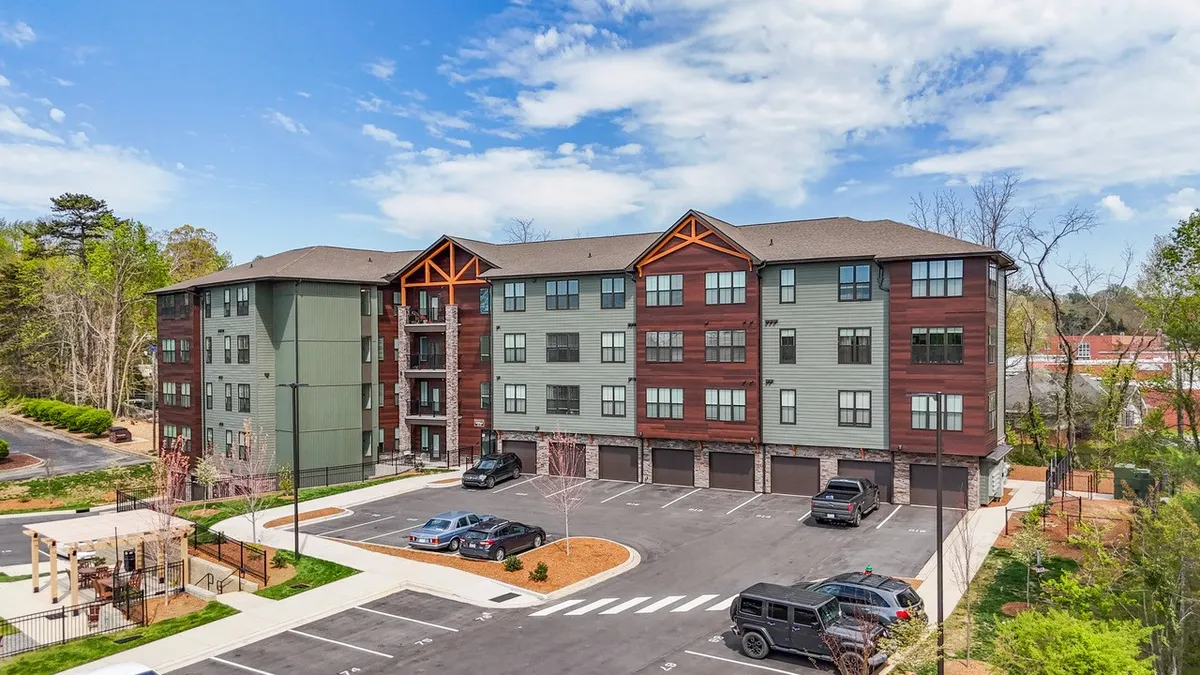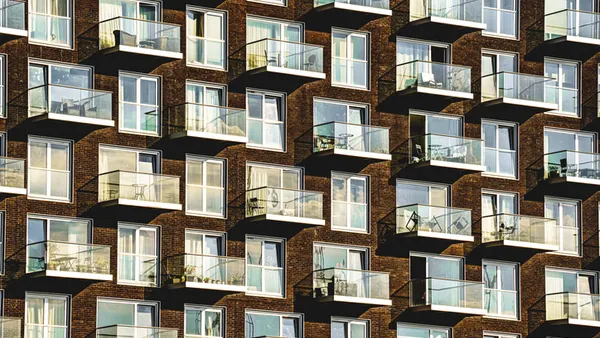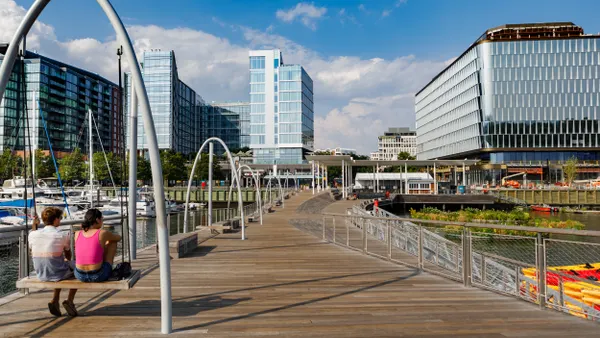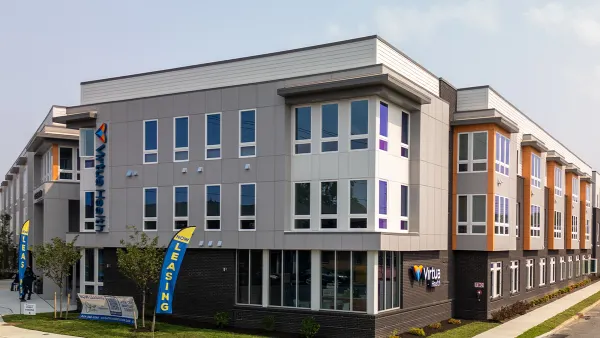Dive Brief:
- The Colorado House of Representatives last week passed HB24-1098, which would bar landlords in the state from evicting residential tenants or denying lease renewals without providing a cause.
- Causes that justify eviction or non-renewal of a lease are nonpayment of rent, lease violations or any conditions that constitute grounds for a no-fault eviction. These include demolition of the property, substantial renovations, occupancy by the landlord or family member of the landlord or withdrawal of the property from the market for sale, according to the bill’s initial summary.
- If a landlord carries out a no-cause eviction, this is considered the unlawful removal of a tenant, and renters can use the landlord’s violation as a defense in eviction proceedings in court.
Dive Insight:
Colorado does not currently require landlords to provide any reason to evict a tenant. A previous iteration of for-cause eviction legislation was introduced in 2023 but did not pass.
A number of advocacy organizations, including the American Civil Liberties Union of Colorado and the Community Economic Defense Project, have expressed their support for the bill, citing protection of tenants from unjust eviction.
However, the Colorado Apartment Association strongly opposes the bill. Among its reasons is the state’s existing fair housing laws can already be used to combat unjust evictions.
“Last year, out of 6 million residents, only 219 fair housing complaints were filed with the Colorado Civil Rights Division, of which less than 10% were found to have merit,” Destiny Bossert, Government Relations Manager for the CAA, told Multifamily Dive. “This data underscores the effectiveness of our current legal framework in addressing and mitigating unfair housing practices without the need for additional, restrictive government intervention.”
The association also said that the bill infringes on owners’ private property rights.
“By compelling involuntary lease renewals, this bill not only infringes upon the constitutional rights of property owners but also risks increasing evictions, as housing providers may have no alternative but to evict to protect their community at large,” Bossert said. “We stand firm in our belief that the current systems and protections in place are sufficient and effective in promoting fair housing.”
Amendments made to the bill in its House committee removed a provision that would have required landlords that proceed with no-fault eviction to require relocation assistance to tenants equaling up to two months of rent, with one additional month if the household makes less than 80% of the area median income, includes a resident under 18 or over 60 or includes a resident with a disability.
The amended bill also allows for eviction if a tenant is interfering with the “quiet enjoyment” of a property by the landlord or other tenants, such as by noise or property damage. Landlords would also be able to evict tenants with at least two late rental payments in the lease period.
The for-cause eviction restrictions would not apply to mobile homes, workforce housing or landlords that live in or adjacent to their property, provided the rental property has three units or fewer. The law would also not apply to tenants who have lived on a property for less than nine months or residents not known to the landlord.
HB24-1098 will move next to the Colorado Senate. The bill has not yet been assigned a Senate committee.











